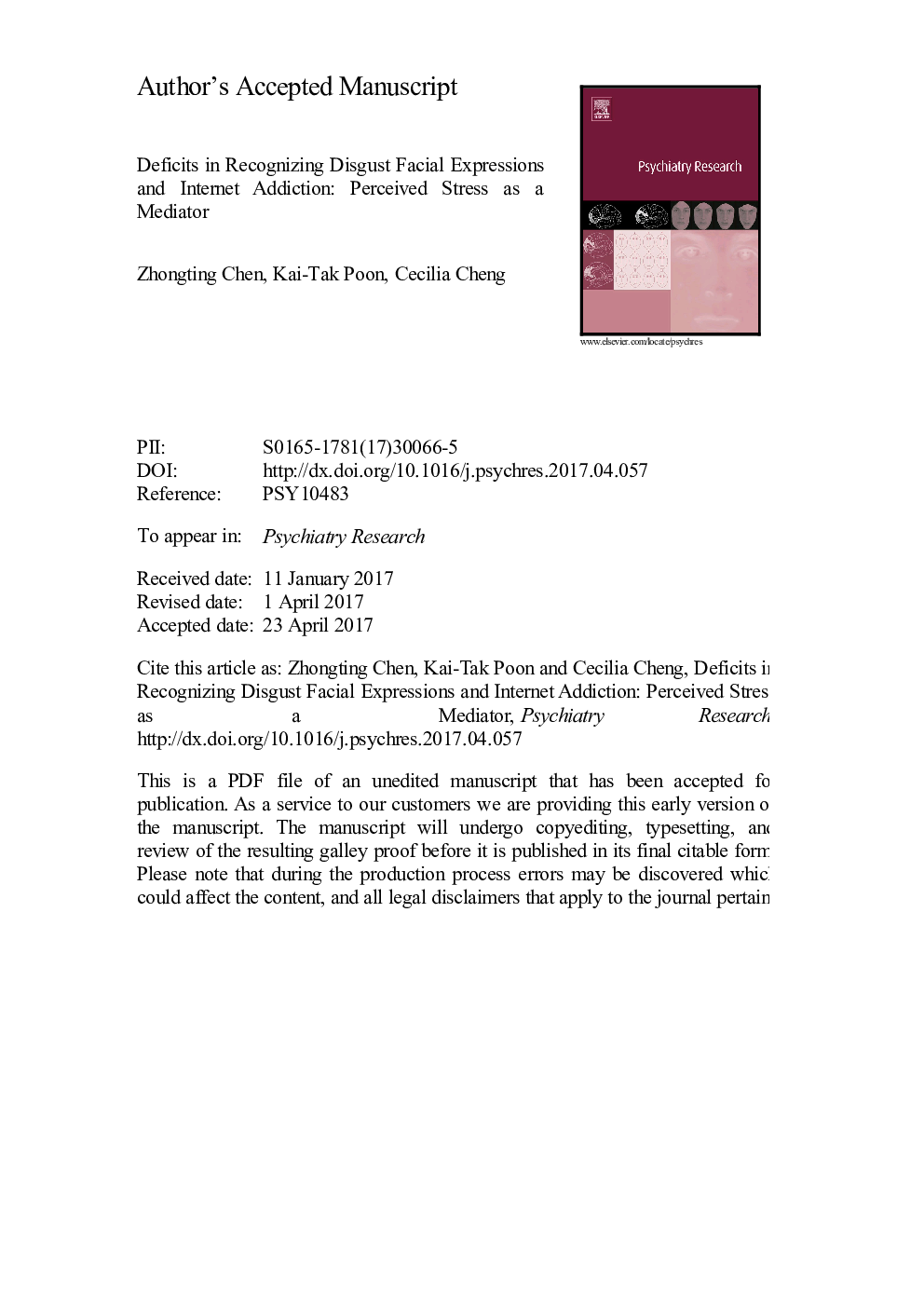| Article ID | Journal | Published Year | Pages | File Type |
|---|---|---|---|---|
| 4933140 | Psychiatry Research | 2017 | 32 Pages |
Abstract
Studies have examined social maladjustment among individuals with Internet addiction, but little is known about their deficits in specific social skills and the underlying psychological mechanisms. The present study filled these gaps by (a) establishing a relationship between deficits in facial expression recognition and Internet addiction, and (b) examining the mediating role of perceived stress that explains this hypothesized relationship. Ninety-seven participants completed validated questionnaires that assessed their levels of Internet addiction and perceived stress, and performed a computer-based task that measured their facial expression recognition. The results revealed a positive relationship between deficits in recognizing disgust facial expression and Internet addiction, and this relationship was mediated by perceived stress. However, the same findings did not apply to other facial expressions. Ad hoc analyses showed that recognizing disgust was more difficult than recognizing other facial expressions, reflecting that the former task assesses a social skill that requires cognitive astuteness. The present findings contribute to the literature by identifying a specific social skill deficit related to Internet addiction and by unveiling a psychological mechanism that explains this relationship, thus providing more concrete guidelines for practitioners to strengthen specific social skills that mitigate both perceived stress and Internet addiction.
Keywords
Related Topics
Life Sciences
Neuroscience
Biological Psychiatry
Authors
Zhongting Chen, Kai-Tak Poon, Cecilia Cheng,
